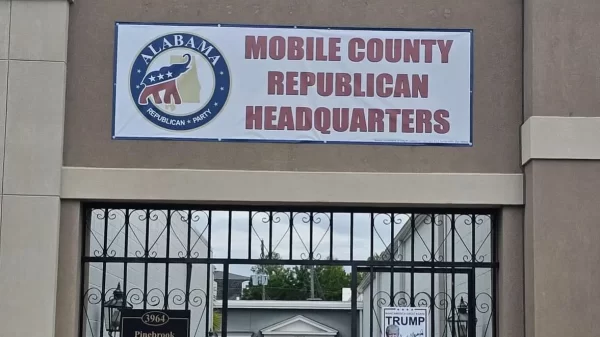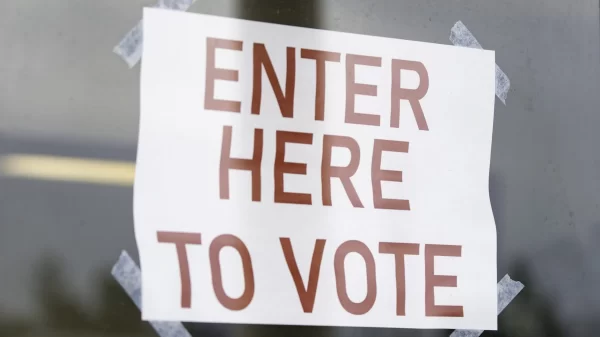By Bill Britt
Alabama Political Reporter
What are we to make of an Attorney General who takes campaign donations from a lawyer/lobbyist who would gut the State’s Ethics laws?
In the political world, friends give campaign donations, but political action committees, lawyers, lobbyists, and businesses invest; and they expect a return on their investment.
So, it is with our State’s Attorney General Steve Marshall. He has taken campaign contributions that can be linked to people and industries with a special interest in matters before the Attorney General’s Office. And now, he has taken two contributions from a PAC led by Edward “Ted” Hosp who has aggressively lobbied to roll back Ethics reform. Marshall received two contributions from Hosp’s GoodPac: one for $2,500 on June 12, and another one for $2500 on June 13.
This is not meant to criticize Hosp. He is a lawyer/lobbyist who represents clients who would like to alter the playing field to their advantage. And in this, he is just doing what lawyers and lobbyists do. There is not an ethical consideration. They serve as hired guns. Those of us who want to strengthen and clarify the Ethics code to make it more enforceable might not like what they do, but that’s what they get paid for, “Have Gun-Will Travel” is their calling card.
But Marshall is the one man who foremost stands for the principle of law and order in our State and therefore shouldn’t be accepting money from those who are paid to compromise his work.
Within days of the former Speaker of the House Mike Hubbard being convicted on 12 felony counts of public corruption various business interests, as well as a host of lawyers, went on the offensive to blunt the impact of Hubbard’s conviction. Just days after the Hubbard trial concluded, Hosp and other lawyers with Maynard, Cooper, and Gale were at work deconstructing the case and even pointing out how Hubbard might win on appeal. Hosp and others argued that the judge, jury, and prosecutors from the State’s Attorney General’s office broadly interpreted portions of the Ethics laws, as related to the guilty verdict in the Hubbard case.
In their analysis, the prosecution and jury broadly interpreted the term “principal” as well as the phrase “thing of value,” and expanded a conflict of interest beyond what they believed was the Legislative definition.
But these lawyers didn’t sit around and daydream about a day when the Court of Criminal Appeals might overturn Hubbard’s verdict, they went to work and none more so than Hosp.
Using a pretense that charities were at risk under the McCalla Opinion issued by the state’ ethics commission which clarified questions concerning public officials soliciting lobbyists and principals for contributions to a charitable organization. Hubbard’s former criminal defense attorney, J. Mark White, Hosp, and others used the McCalla opinion to sow confusion trying to weaken the Ethics laws.
In December, Ethics Commissioners Jerry Fielding, Butch Ellis, and Charles Price (all lawyers) reversed an earlier unanimous advisory opinion concerning Friends of McCalla.
On September 1, 2016, the Commission issued advisory opinion 2016-24 on the Friends of McCalla, which it believed clarified the question regarding public officials soliciting lobbyists and principals for contributions to a charitable organization, operating as a 501(c)(3) non-profit. However, this opinion was used to fumigate widespread panic among Alabama’s charitable organizations, allowing lawyers for the business interests to present an over-subtle and fraudulent construction of the opinion, contrary to what was written and unanimously approved by the Ethics Commission in Friends of McCalla.
Marshall for his part has cozied up to the very business interests, lawyers, and lobbyists who have declared open season on Ethics reform, including BCA’s Billy Canary.
Marshall prattles on about opioids and working with District Attorneys on that issue, as well as human trafficking. The District Attorney doesn’t report to the Attorney General. Marshall doesn’t seem to understand that the Attorney General’s job is to represent the State, and his or her’s most important job is to insure that State laws are enforced, especially public corruption. No County District Attorney has the resources to battle high-level public corruption, but the Attorney General does.
It is beneath the office of Attorney General to accept campaign contributions from those who are hired to pummel the Ethics laws into dust.
It is beneath the dignity of the office to wine-and-dine with the likes of BCA boss, Canary, who is persona non grata in the highest offices in Washington, DC.
It appears Marshall wants the job former Gov. Robert Bentley gave him so badly, that he will take an investment from anyone.
They say every man has his price. So, what’s the going rate for the integrity of the Attorney General?




















































